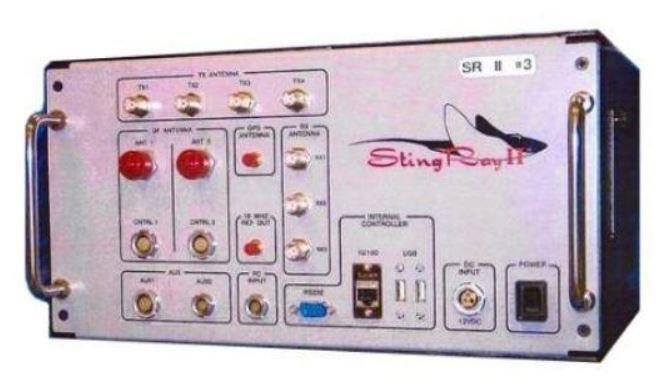Local and federal police often use a StingRay device to track suspects down via their cellphone, but a Washington, D.C., appeals court Thursday ruled that doing so without a warrant is unconstitutional. Photo courtesy of
U.S. Patent and Trade Office
Sept. 22 (UPI) -- The Washington, D.C., Court of Appeals ruled Thursday that it is violation of the Fourth Amendment for law enforcement to track a person's phone without a warrant, putting a dent in a popular technique used by local and federal police around the country.
Authorities sometimes use a cell-site simulator, which mimics a cell phone tower and allows the user to track a phone, also known as a StingRay, to find suspects. But doing so without a warrant, the court ruled, "invades the person's actual, legitimate and reasonable expectation of privacy in his or her location information and is a search."
"We thus conclude that under ordinary circumstances, the use of a cell-site simulator to locate a person through his or her cellphone invades the person's actual, legitimate and reasonable expectation of privacy in his or her location information and is a search," the court ruling said. "The government's argument to the contrary is unpersuasive."
The ruling reversed the conviction of Prince Jones, who had been found guilty of sexual assault in 2013. D.C. police used the StingRay program to track Jones down through his cellphone, where they found evidence that was used against him.
The court ruling could have major effects on policing around the nation. According to the American Civil Liberties Union, 72 law enforcement agencies in 24 states, as well as the District of Columbia, use StingRays.
According to a December 2016 House Oversight and Government Reform Committee report, U.S. taxpayers spent $95 million on 434 cell-site simulator devices between 2010 and 2014.
Single devices typically cost around $500,000.
"While law enforcement agencies should be able to utilize technology as a tool to help officers be safe and accomplish their missions, absent proper oversight and safeguards, the domestic use of cell-site simulators may well infringe upon the constitutional rights of citizens to be free from unreasonable searches and seizures, as well as the right to free association," the report said.
The ACLU praised Thursday's ruling, calling it a "recognition that constitutional protections must keep pace with advancing technology, and is an important reminder of what is at stake as the Supreme Court takes up the issue of police requests for historical cellphone location data."















